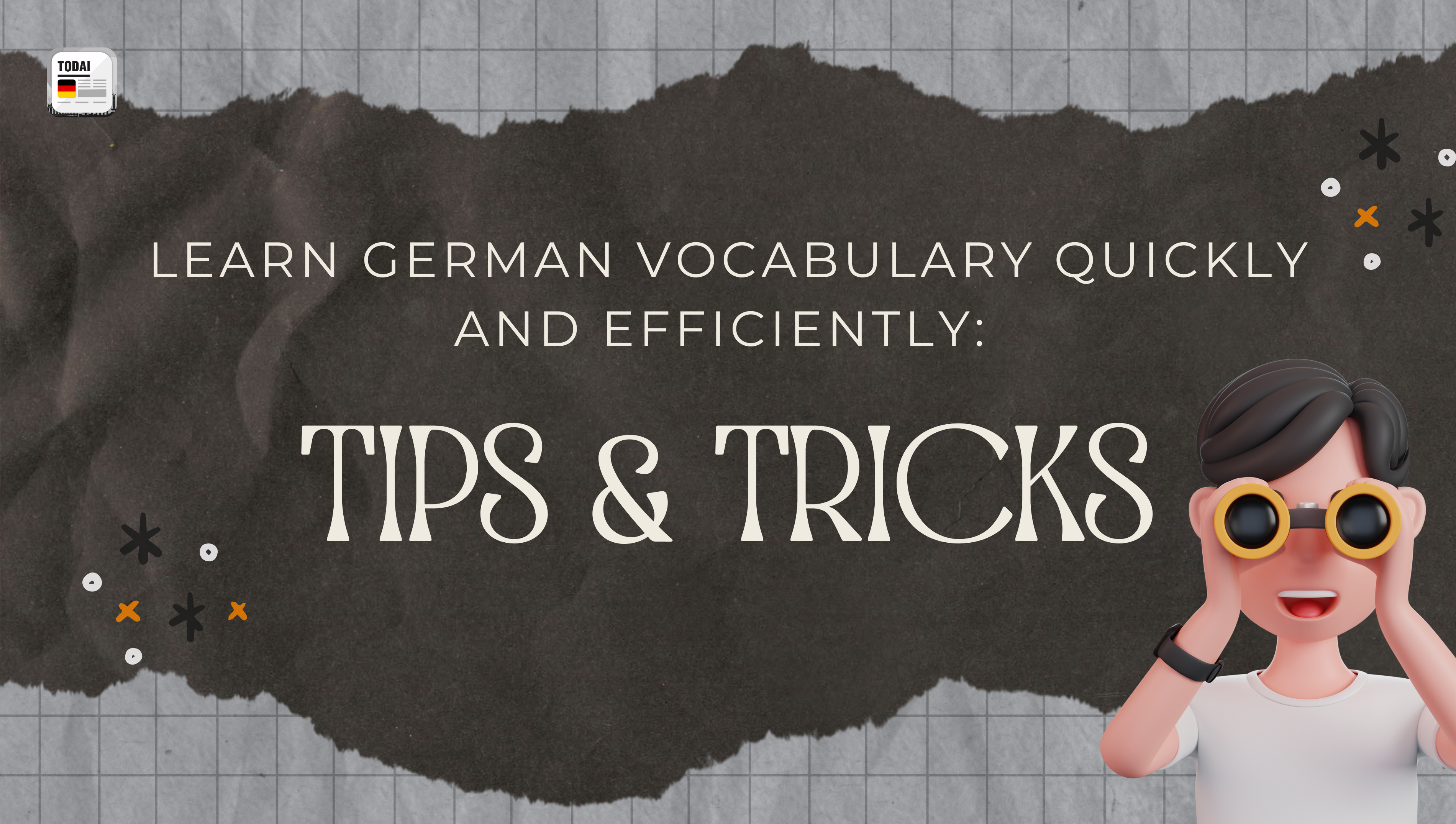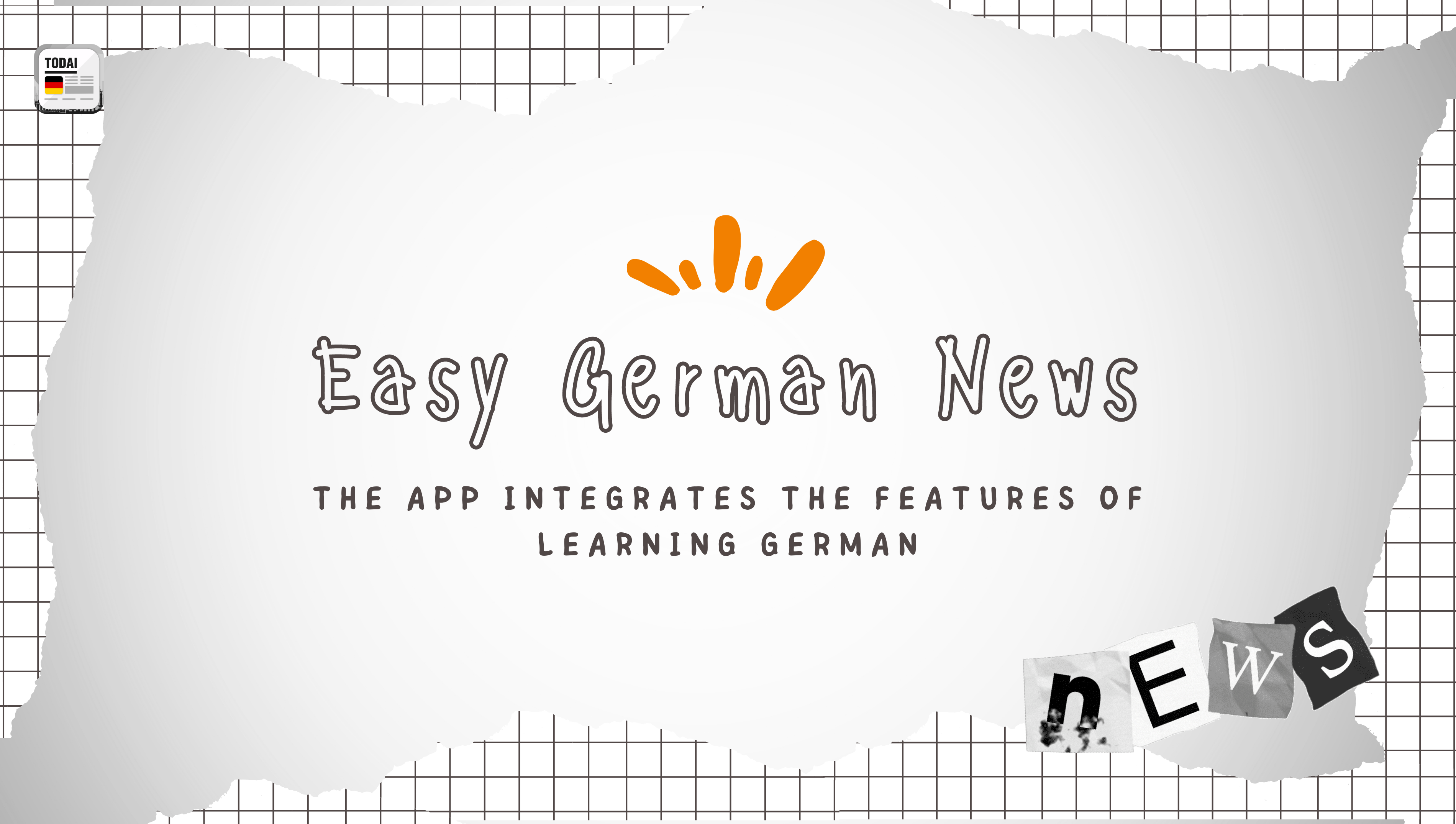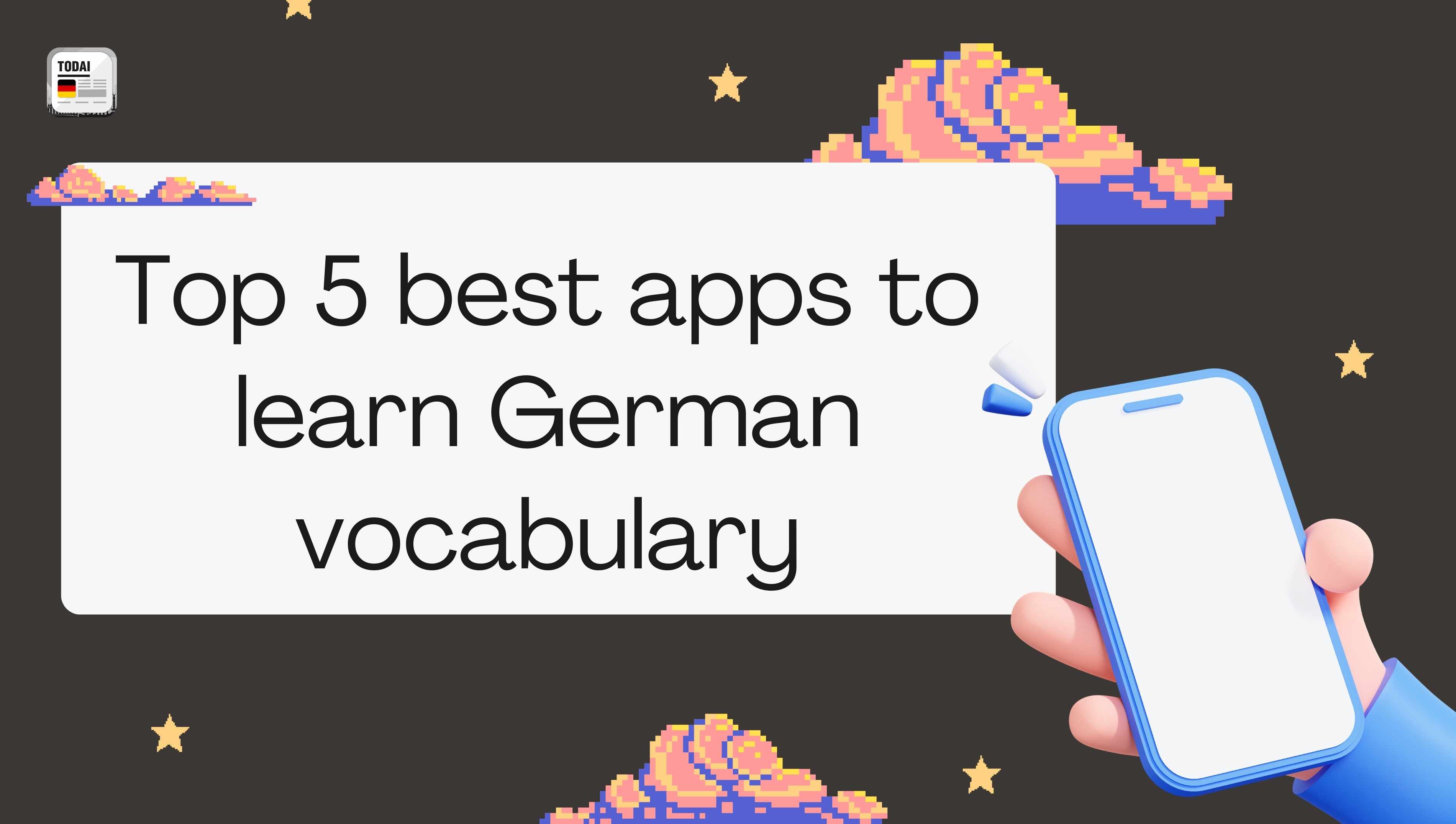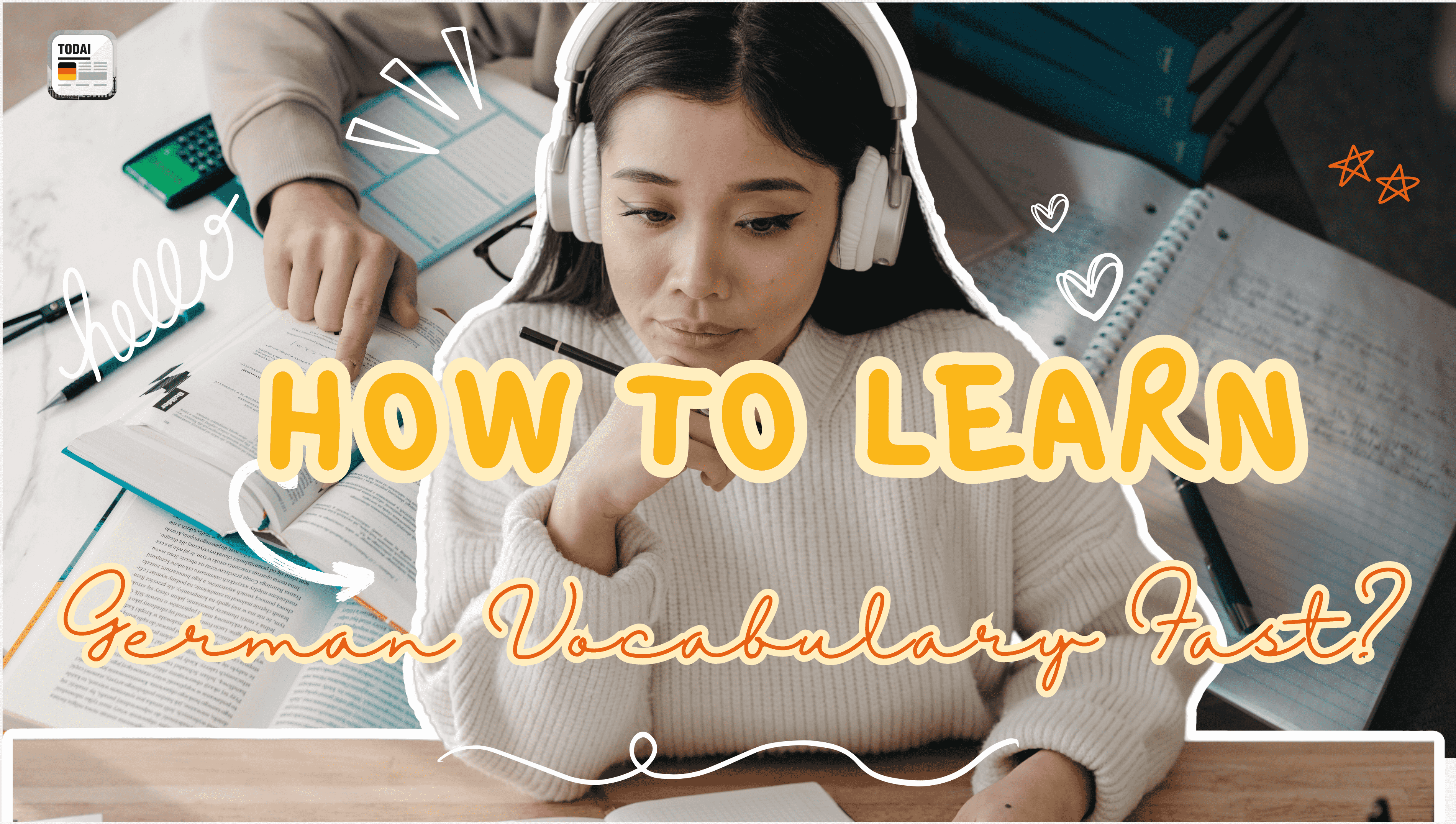Learn German Vocabulary Quickly and Efficiently: Tips and Tricks
21/04/2025
863

Contents
Learning German vocabulary can be a daunting task, but with the right strategies, it can be done quickly and efficiently. Whether you are a beginner or an advanced learner, there are several tips and tricks that can help you expand your German vocabulary in no time. In this blog post, we will discuss three effective ways to learn German vocabulary quickly and efficiently.
1. Use flashcards and spaced repetition
Flashcards are a useful tool for learning German vocabulary quickly and efficiently. They allow you to study the most important words and phrases that you need to know to communicate effectively in German. Spaced repetition is a technique that helps you remember what you have learned more effectively. This technique involves reviewing the words and phrases you have learned at regular intervals over a period of time. This helps to keep the information fresh in your mind and improves your ability to recall it when you need it. There are many apps and websites that offer flashcards and spaced repetition, such as Anki, Memrise, and Easy German News,...

Use flashcards to learn German vocabulary
2. Read German texts
Reading German texts can be a great way to expand your vocabulary quickly and efficiently. When you read German texts, you expose yourself to new words and phrases in context, which can help you understand their meaning and usage better. This not only helps you learn new vocabulary but also improves your overall reading comprehension in German. You can start by reading texts that are at your level, such as children's books, and gradually move on to more complex texts such as news,...
.png)
Read German texts to learn German vocabulary
You can use the Easy German News app to read newspapers, stay up to date with the latest news and practice reading text in German every day. The application has a direct lookup feature right in the article so it will be very easy for you to grasp the content and learn new vocabulary.
3. Use mnemonics and associations
Mnemonics and associations can be a fun and creative way to remember German vocabulary. Instead of just memorizing the word, you can create a story or image in your mind that connects the word to something else. For example, to remember the German word "Mittwoch" (Wednesday), you could picture a mitt (baseball glove) with a watch on it. You can also create associations with the sound of the word or its meaning. For instance, the German word "Buch" (book) sounds like "book”, but you can also associate it with "Beach" to help you remember that it's a masculine noun.

Use mnemonics and associations in learning German vocabulary
Conclusion
Learning German vocabulary quickly and efficiently requires a combination of different strategies. By using flashcards and spaced repetition, reading German texts, and using mnemonics and associations, you can expand your German vocabulary in no time. These techniques not only help you learn new words and phrases but also improve your overall German language skills, such as reading comprehension and memory retention. So, go ahead and try them out, and see how quickly you can improve your German vocabulary!
Category
App introduction
Study tips
Interested

21/04/2025
19686
Stay Updated with Ease: Introducing the Easy German News App for Language Learners
Do you struggle to improve your German language skills? Do you find it challenging to read news articles in German? If so, then Easy German News is here to help

21/04/2025
17470
Introducing the Easy German News App's Video and Newspaper Reading Features
The application has recently introduced the feature of watching videos and reading newspapers, making the learning process even more exciting.

21/04/2025
13239
Top 5 best apps to learn German vocabulary
One of the biggest hurdles to overcome when learning is building up your vocabulary. In this blog post, we will explore the top 5 best apps to learn German vocabulary

21/04/2025
12574
How to Learn German Vocabulary Fast?
If you're learning German, you know that memorizing hundreds or even thousands of German words can be overwhelming. In this blog post, we will discuss some effective tips...
Your Comment
Comment (0)

